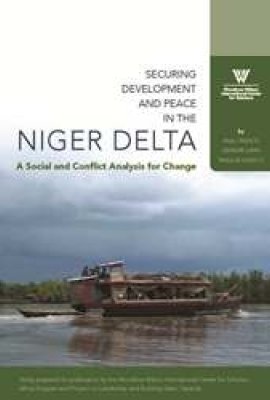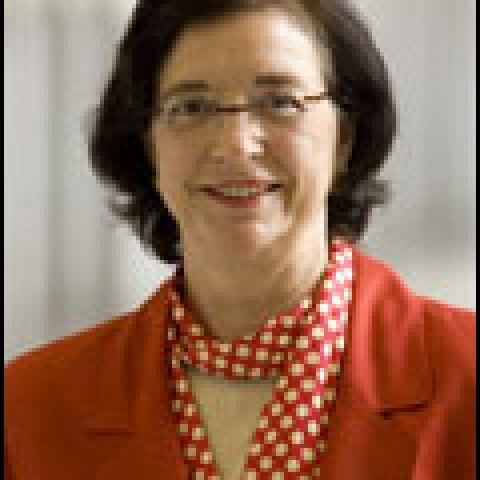Deirdre LaPin
Former Fellow
Professional Affiliation
Senior Research Associate at the University of Pennsylvania
Expert Bio
People often search for a common thread in the combined career of an academic, an international development planner, and a social investment manager in an oil company. Three themes unite them: "communities," "Nigeria," and "multi sectoral planning" for development. All converge in the paradox of the oil-rich Niger Delta, where widespread dis¬sent and violence surround the inequities of the oil economy. By now, the conflict is an all-too familiar story, rooted in a complex social history, passed on through community oral tradition, and reinterpreted in the international press. Recently, I have joined others in a fresh search for workable solutions to the Niger Delta question. During forty of Nigeria's fifty "oil" years, my work has taken me to the country in various roles. In 1970, I researched the first Master's Thesis on Wole Soyinka, whose dramas are built upon traditional community festivals. My doctoral research continued the journey through many Nigerian communities, large and small, where I recorded and photographed performances of traditional cultural expressions. The ethno linguistic process of "storytelling" as a way of shaping and en¬forcing collective thought and action became a vital tool many years later in understanding the dynamics of the three-way conflict between delta communities, the oil industry, and the Nigerian state. My Nigerian "mama" can take credit for the first major detour in my professional life. "Look here, Aduke," she said, addressing me in her language. "We know our culture is one of the greatest in the world. But it is time for you to do something practical. Have you seen our schools without books or desks or even teachers? Have you seen our hospital with no doctor or drugs? What are you going to do about that?" In 1984 I joined UNICEF to head their office in Benin Republic. Serving the UN in that socialist country and later in Somalia was a rich education in people-centered development, multi-sectoral planning, and the power of business models for sustaining social services. I learned first-hand the devastating effects of famine, violence and war. Judging public health as perhaps the most effective of the development sectors, I spent a year after evacuation from war-torn Somalia in 1990 to pursue an MPH at John‘s Hopkins. Five years of designing and managing projects in USAID returned me to Nigeria and reinforced my commitment to a "public-private" partnership approach to development. The hanging of Ken Saro-Wiwa and international sanctions against Nigeria in 1995 brought about a second major career shift. Oil companies in the Niger Delta had begun a belated but well-funded effort to fill the yawning development gap that had grown during military rule. For nearly five years I led the design, staffing, implementation, and evaluation of a $60 million/year sustainable community development program serving 7 million people. A best-practice development program was an innovation for industry in Africa, but the private sector alone could not reverse the degradation suffered by the long-neglected region. Today, this requires a robust and collective approach to peace and development by the oil industry, the Nigerian state, and civil society. A fresh and balanced analysis of the Niger Delta crisis may help to foster firm commitment by a coalition of the willing to bring about such change.
Education
B.A. (1967) Phi Beta Kappa, French/History, Agnes Scott College, (Université de Paris, 1966); Ph.D. (1977) and M.A. (1971) African Studies/ Anthropology, University of Wisconsin-Madison; Post-Doctoral Certificate & Masters in Public Health (1993/1991) Johns Hopkins University
Experience
Industry
- Sustainable Development Manager, Shell International for Petroleum Development Oman, 2002-03
- Corporate Community Development Advisor, Shell Petroleum Development Company, Nigeria Ltd., 1997-2001
International Development
- Senior International Development Advisor, USAID, 1993-96
- Development Planning and Evaluation Consultant, USAID, 1991-93
- Planning and Evaluation Officer, UNICEF Somalia, 1987-1990
- Resident Program Officer, UNICEF Benin, 1984-86
Academic Positions
- Associate Professor, University of Arkansas 1978-1984 (tenure 1982)
- Visiting Lecturer, University of Pennsylvania, 1983
- Andrew W. Mellon Faculty Fellow, Emory University, 1977-78:African Studies
- Staff Lecturer,Awolowo University, Ilé-Ifè, Nigeria, 1975-77: Faculty of Arts.
Expertise
International development; Africa (Nigeria); social policy; corporate responsibility
Wilson Center Project
"The Niger Delta Story: Oil, State and Society in Collision"
Project Summary
Dissent surrounding oil activity in the Niger Delta has led to expanding, low intensity conflict which threatens both Nigerian and global economies. A proposed book will offer a balanced analysis of the current crisis as a system of interaction between cultural patterns, organizational structures, and enablers among three principal stakeholder groups: oil companies, governments, and a diverse and complex society. Chapters will trace the conflict from the colonial period through conflicting expectations regarding reciprocity and exchange, ownership of resources, social inclusion, structures of authority, warfare and territoriality, spiritual life, and use of media and per¬suasion. Such a neutral conceptual platform engaging all stakeholders may encourage greater mutual understanding and establish a common way forward toward harmony in the Niger Delta region.
Major Publications
- "The Leveraged Buy-in: Creating an Enabling Environment for Business through Strategic Social Investment." Paper No. 62104 (Society of Petroleum Engineers, June 2000), found at http://www.spe.org
- "Women in African Literature," in African Women South of the Sahara. Jean Hay and Sharon Stichter, eds. (Longman, 1985; completely revised 1995)
- Sons of the Moon: The Ngas of Central Nigeria (Institute for the Study of Human Issues, 1984). "Sons of the Moon" (22 min. film), with Francis Speed and Michael Camerini (funded by the National Endowment for the Humanities; distributed by The British Museum, London, 1984)
Insight & Analysis by Deirdre LaPin
- Publication
- Conflict Resolution and Peacebuilding
Africa: Year in Review 2023
- By
- Ambassador J. Peter Pham,
- Fikayo Akeredolu,
- Thomas P. Sheehy,
- and 46 more
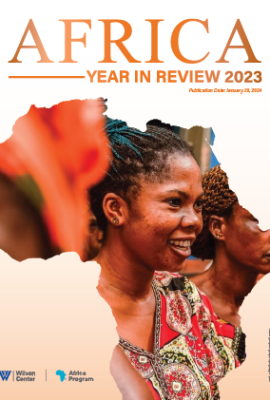
- Publication
- Coronavirus
Africa: Year in Review 2021
- By
- Joseph Asunka,
- Christopher Maloney,
- Thomas P. Sheehy,
- and 24 more
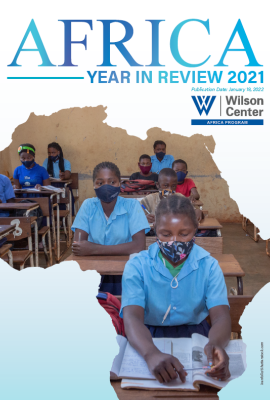
- Past event
- Conflict Resolution and Peacebuilding
Recent Developments in Nigeria: Subsidies, Spills and Security
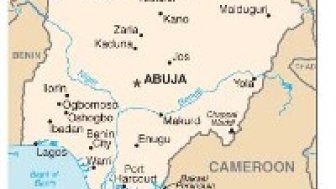
- Publication
- Conflict Resolution and Peacebuilding
Securing Development and Peace in the Niger Delta: A Social and Conflict Analysis for Change
- By
- Paul Francis,
- Deirdre LaPin,
- and Paula Rossiasco
